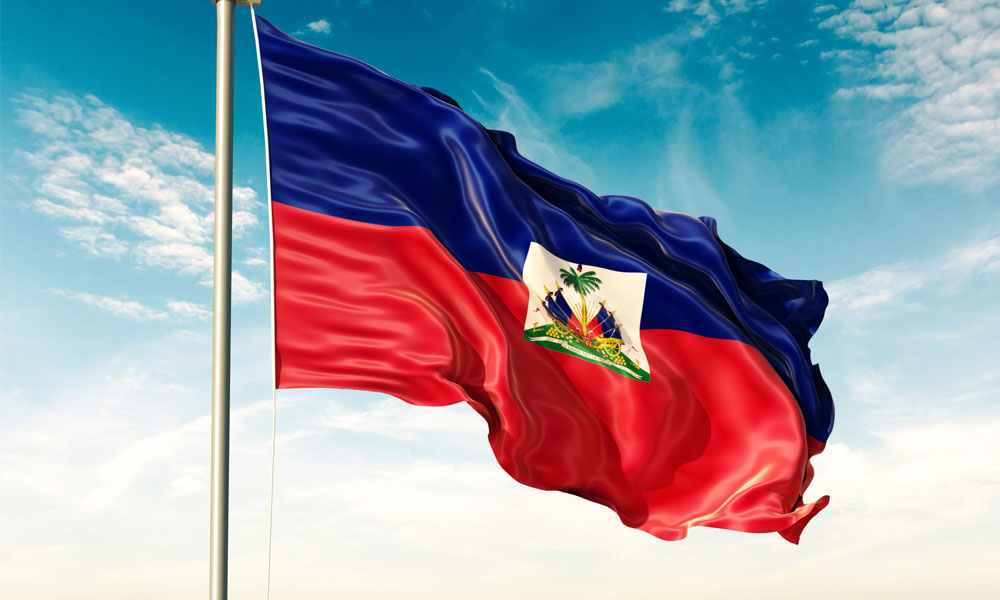Every year on May 18th, the people of Haiti come together to celebrate Flag Day, a significant national holiday that commemorates the creation of their beloved flag. This vibrant occasion holds great cultural and historical importance for the Haitian people, symbolizing their unity, resilience, and enduring spirit.
Table of Contents
The Flag
The flag of Haiti is a powerful emblem that reflects the nation’s rich heritage and struggle for independence. Designed by Catherine Flon, a revolutionary heroine, the flag was first unveiled on May 18, 1803, during the Haitian Revolution against French colonial rule. It consists of two horizontal bands blue on top, representing the union of black and mulatto citizens, and red at the bottom, symbolizing the bloodshed and sacrifices made during the fight for freedom. In the center lies the national coat of arms, featuring a palm tree, a Phrygian cap symbolizing liberty, and the inscription “L’Union Fait La Force” (Unity Makes Strength).
Celebration
Flag Day in Haiti is a vibrant and joyful occasion, filled with parades, music, dancing, and cultural events. Streets are adorned with the national flag, which proudly waves in the Caribbean breeze. Schools, community organizations, and government buildings organize flag-raising ceremonies, where the flag is hoisted while the national anthem, “La Dessalinienne,” is sung with immense pride.
The celebrations are not limited to Haiti alone. Haitian diaspora communities around the world join in the festivities, proudly displaying the flag and organizing various events to honor their homeland. These celebrations serve as a reminder of the deep connection that Haitians have with their cultural roots, regardless of their geographical location.
Haiti Flag Day is not merely a day of celebration but also a moment for reflection. It serves as a reminder of the struggles faced by the Haitian people throughout their history and the immense sacrifices made to achieve independence. From the courage of leaders like Toussaint Louverture, Jean-Jacques Dessalines, and Catherine Flon to the enduring strength of ordinary citizens, Haiti’s history is one of resilience, perseverance, and the indomitable spirit of freedom.
Importance and Tradition
The holiday also offers an opportunity to highlight the importance of unity in overcoming challenges. Despite facing numerous socio-economic and political difficulties, the Haitian people continue to show remarkable resilience and solidarity. Flag Day serves as a reminder that the nation’s progress depends on the collective efforts of its citizens, working together to build a brighter future.
Furthermore, Flag Day celebrations provide a platform to showcase Haiti’s vibrant arts, music, and cultural traditions. Traditional dances such as the Yanvalou, Congo, and Ibo are performed, accompanied by the rhythmic beats of drums and traditional songs. Haitian art, renowned for its vivid colors and rich symbolism, is also displayed and celebrated during this festive time.
Significance
In recent years, Flag Day has gained increased attention and significance, both within Haiti and internationally. It has become a symbol of hope and a rallying point for Haitians, particularly during times of adversity. It serves as a reminder of the resilience and strength that have carried the nation through countless challenges, including natural disasters, political unrest, and economic struggles.
As Haiti continues to rebuild and reshape its future, Flag Day serves as a beacon of unity, resilience, and national pride. It reminds the world of the enduring spirit of the Haitian people and their commitment to creating a brighter future for themselves and generations to come.
Conclusion
On this Haiti Flag Day, let us honor the rich history and cultural heritage of Haiti. May the flag continue to symbolize the strength and determination of the Haitian people, and may it serve as a reminder that unity and resilience can overcome any obstacle.
Author
Stay connected for new publications, events, and more.







More Stories
Le pape Léon XIV : un pontife historique qui jette un pont entre les continents et les cultures
What Happens When a Pope Dies
Le Prix de la Liberté : 17 Avril 1825, une Ordonnance Injuste. Déclaration de Macron